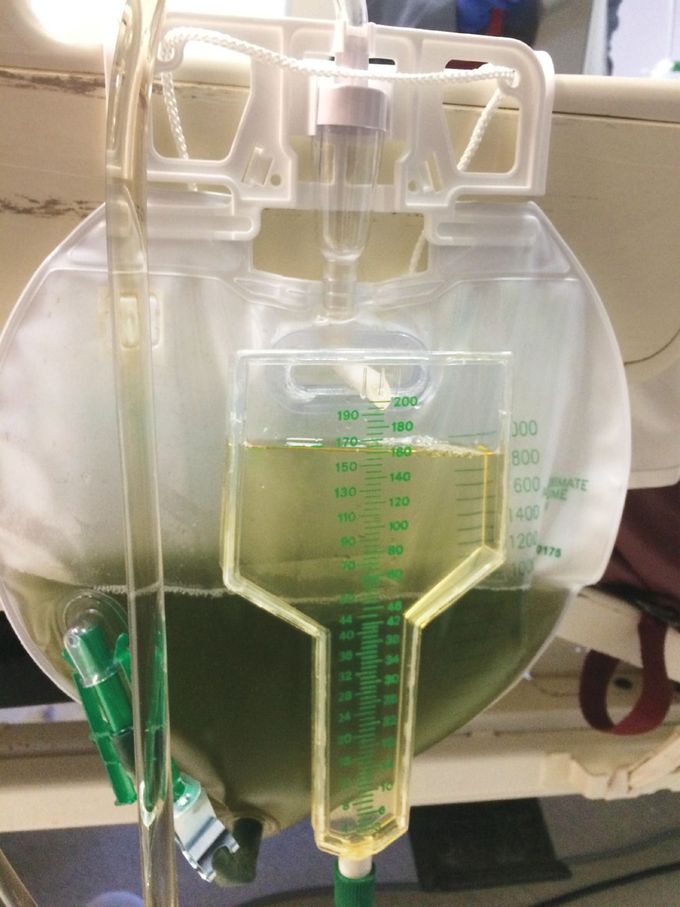


Green Urine
A 62-year-old man with chronic obstructive pulmonary disease presented to the emergency department with a 2-day history of dyspnea and was found to have hypercapnic respiratory failure. Intubation was performed, mechanical ventilation and a continuous infusion of propofol were initiated, and the patient was admitted to the intensive care unit (ICU). Five days after admission to the ICU, his urine became green. Green discoloration of the urine may be attributed to a number of factors, including medication (e.g., propofol, indomethacin, amitriptyline, cimetidine, and methylene blue), obstructive jaundice, and infection with pseudomonas species. The patient had a normal serum level of total bilirubin, showed no indication of infection, and was taking no medication other than propofol that could account for the discoloration of his urine. Once the propofol infusion was discontinued, the urine color returned to normal. After a 2-week hospitalization, the patient was discharged to a rehabilitation facility. Propofol is metabolized primarily in the liver; it is thought that its phenolic metabolites can cause green discoloration of the urine when it is eliminated through the kidneys. The metabolites are not nephrotoxic, and propofol-induced green discoloration of the urine is a benign and uncommon phenomenon.

